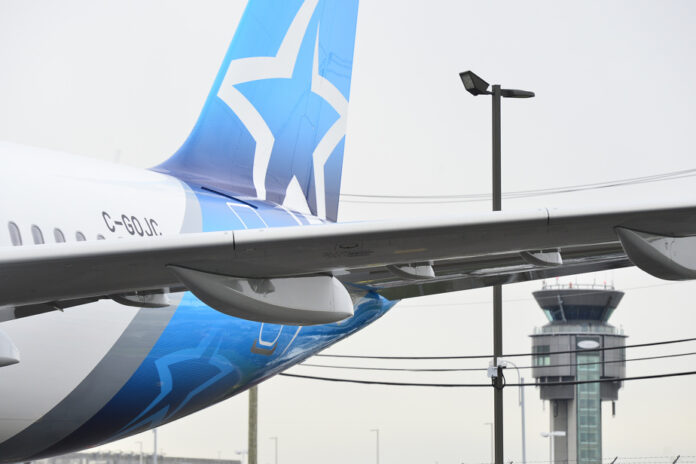Air Transat and Porter will create a joint venture to share their respective networks. The two airlines believe that they will be able to offer more routes to their customers by joining forces.
The two airlines remain independent and will retain their own brand. This announcement should not be seen as a step towards a possible merger or acquisition, responds the president and CEO, Annick Guérard, in an interview. “It’s not something we’re discussing right now. »
Transat had accepted a purchase offer from Air Canada in 2019, before the pandemic. However, the transaction aborted in 2021 after encountering refusal from European regulatory authorities, at a time when the airline industry was hit hard by health restrictions.
The new joint venture, which will “gradually” come into operation in 2024, will allow both airlines to increase the breadth of their network. Transat serves more than 60 destinations and Porter more than 30 destinations. Their combined network will serve more than 80.
Porter and Transat had already entered into a codeshare agreement at the end of 2022. By creating a joint venture, Transat and Porter will be able to even better coordinate their strategies, schedules, prices and promotional efforts.
“We will be able to better connect our schedules to make stopovers easier for passengers,” explains Ms. Guérard. This is not something we could do with the codeshare agreement. The price will be more competitive, too. »
The two companies also plan to collaborate with their loyalty program. “In the short term, members of the VIPorter program will be able to claim their points on a Transat flight. For our part, Transat wants to launch its loyalty program at the beginning of 2025.”
The two carriers emphasized that they have complementary expertise: short- and medium-haul domestic and transborder flights for Porter, and medium- and long-haul international flights for Air Transat.
Transat estimates that the previous codeshare agreement helped increase ridership by more than 60,000 people in 2023. “At full potential,” Transat anticipates that between 15% and 18% of its customers will connect with a Porter flight.
Analyst Tim James of TD Securities sees the deal as a good thing for investors. “We believe that the combination of these two complementary brands will contribute to Transat’s financial results, without requiring significant investments. »
Ms. Guérard clarified that the revenue sharing agreement was based on the framework established by the International Air Transport Association (IATA). Each company will be compensated according to the portion of the journey for which it is responsible.
The agreement will increase competition in the Canadian market, judges the president and CEO of Porter, Michael Deluce, during the same interview.
He gives the example of a passenger from Winnipeg who wants to go to Paris. They can take a Porter flight to Toronto and then a Transat flight to the French capital. “Now this traveler has another option. »
Analyst Cameron Doerksen of National Bank Financial describes the agreement as “pro-competitive.” He emphasizes that there are few duplicates between the routes offered by the two airlines. “We do not anticipate any issues with regulatory authorities. »
Transat shares were up 3 cents, or 0.99%, at $3.06 on the Toronto Stock Exchange in afternoon trading.















